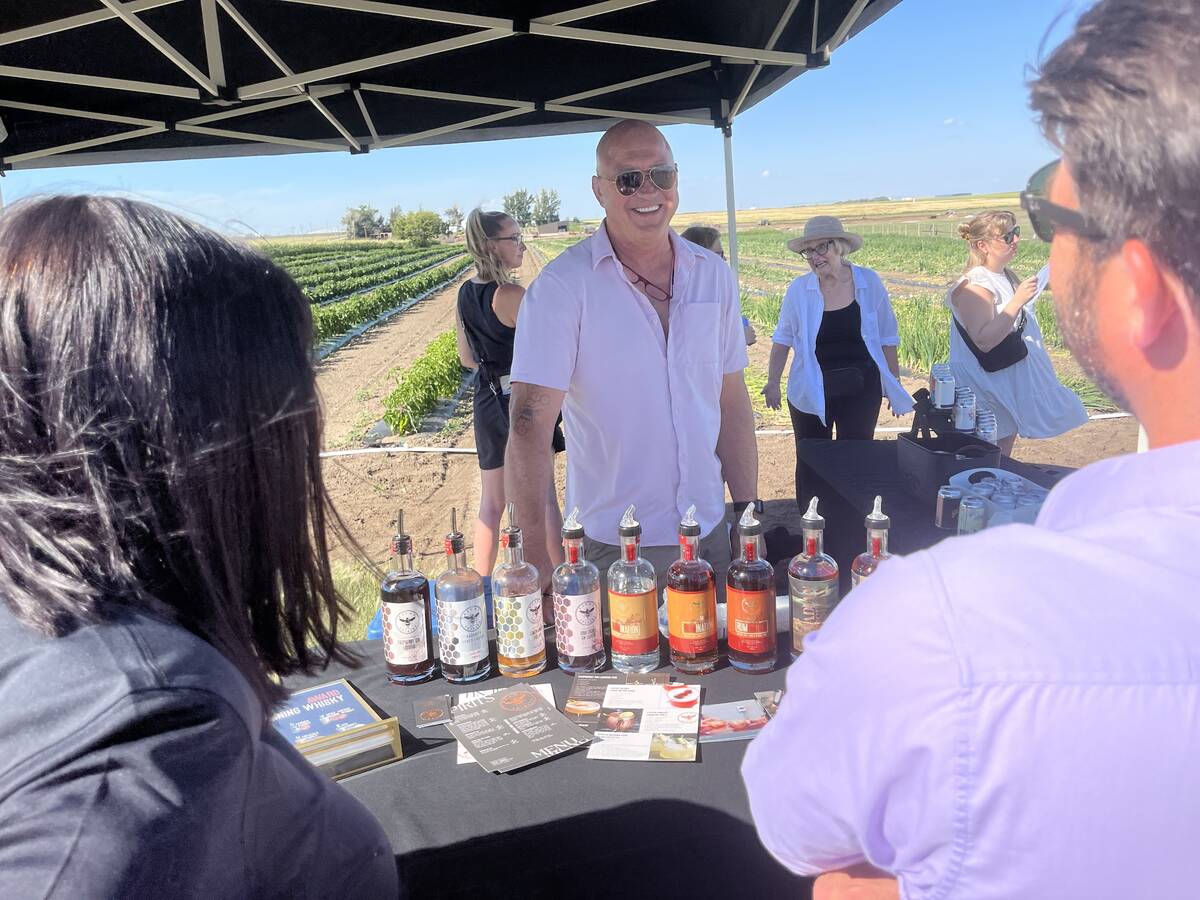Negotiations underway Farmers, CWB and grain companies look for completion of commercial agreements soon
The CWB’s complex task of negotiating commercial grain handling agreements with elevator companies is progressing as expected, according to senior managers with the marketing agency.
However, the clock is ticking and the CWB will need to conclude more agreements within the next couple of months.
“We’ve been at this for about three months now, which might seem like a long time but it’s actually a pretty short time to be organizing something that’s relatively complex,” said CWB chief executive officer Ian White.
Read Also

From farmer to award-winning distiller
Pivot Spirits showcases transition from farmer to distiller with provincial award-winning results in Alberta for Lars Hirch
“I suppose it’s taking about the time that we thought it would take, but there’s no doubt that as we move into the next couple of months, farmers and ourselves and the grain companies will all want to have these completed.”
As of April 18, the CWB had concluded handling agreements with Cargill and the South West Terminal (SWT) near Swift Current, Sask.
Cargill has 31 primary elevators in Western Canada: nine in Manitoba, 12 in Saskatchewan and 10 in Alberta. It also owns grain export terminals in Thunder Bay and Vancouver.
SWT’s elevator at Antelope, Sask., has storage capacity of 52,000 tonnes and is located on the Canadian Pacific Railway’s Maple Creek Line, one of two CPR main lines that carries freight out of Saskatchewan toward the West Coast.
CWB officials have acknowledged that Glencore’s proposed takeover of Viterra has thrown a new twist into the negotiation process.
However, the company is still confident commercial agreements will be reached with Viterra and other major grain handlers before Aug. 1.
“The Viterra sale and associated timing issues have obviously added additional factors to our discussions with all companies,” said CWB spokesperson Maureen Fitzhenry.
“However, we are getting very positive indications and remain confident of reaching handling agreements with most, if not all, grain companies, which will give farmers the biggest possible range of delivery points and opportunities when they choose CWB contracts.”
Fitzhenry said farmer interest in CWB contracts has been strong.
Growers are interested in committing at least part of their production to CWB pools, but most are awaiting confirmation of additional delivery points before signing contracts, she added.
White suggested that CWB pools could handle as much as one-third of wheat and barley produced in Western Canada in the 2012-13 crop year.
“Farmers will determine what they want to do, but we think that as part of their risk management, to put one-third or more of their grain into a pool would be a very good idea,” he told reporters at a Canada Grains Council conference in Winnipeg.















